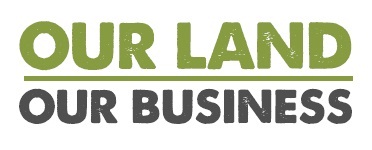It’s easy to get misguided by the well-intentioned altruism of global organisations like the World Bank.
Starting this week (August 11-17), teach-ins will take place from New York to Nairobi, to tell more people about the World Bank’s hidden agenda. You can check the teach-in locations here. https://ourlandourbusiness.org/get-involved/teach-ins/
But first, take a look at these truths about the organization that reveal its true motivation and intentions.
Truth no.1: According to a report released by the World Bank in 2012, the developing world owed $4tn at the end of 2010. This is after the bank, G8 and the IMF cancelled billions of dollars of debt owed by developing countries.[1]
Truth no. 2: The US treasury owns 51% of the World Bank. Not just that, the head of the World Bank so far has always been an American citizen. The US government nominates the head as well.[2] Talk about American influence in ‘world’ matters?
Truth no. 3: The Bank policies are disguised to help corporations grab land for cheap in the developing world. Their latest maneuver is the Doing Business (DB) rankings.
Countries in the developing world are ranked on the basis of ease of doing business with them. In other words, fewer regulations = a higher rank. Regulations with which the bank has a problem include environmental laws, human rights, and land rights, to name a few.
Take the example of Philippines, one of the top ten countries in the 2014 DB ranking. By following the Bank’s advice on reforms, the country lost 5.2 million hectares of land to foreign corporations in 2013.[3]
Truth no. 4: Looking at the success of the of its DB rankings, the G8 countries demanded that the World Bank develops something similar for agriculture. The World Bank is now developing a new framework for Benchmarking the Business of Agriculture (BBA). The UK, US, Dutch and Danish governments, and the Gates Foundation are funding this work.[4]
The BBA will adapt the DB rankings to agriculture. To score well in the BBA, countries will have make it possible for multi-national seed corporations to own agricultural land and impose genetically modified seeds on unwilling farmers.
We know the World Bank’s real intentions. It’s not to reduce poverty, but to create more of it so that its rich funders can keep accumulating wealth. The bank is not for the world, it’s for the 1% who want to suck the world dry for their profits.
By its own doings, the Bank has pitted itself against the world. It’s WorldvsBank and we are on the side of the world. Have you picked your side yet?
Sources:
1. A developing world of debt, The Guardian, May 16, 2012. http://www.theguardian.com/global-development/poverty-matters/2012/may/15/developing-world-of-debt
2.United States overview, http://www.worldbank.org/en/country/unitedstates/overview#1
3. New shock doctrine doing business with the World Bank, http://www.thoughtleader.co.za/jasonhickel/2014/04/04/the-new-shock-doctrine-doing-business-with-the-world-bank/
4. World Bank’s new agriculture project threatens food security, warn experts, The Guardian, March 31, 2014. http://www.theguardian.com/global-development/2014/mar/31/world-bank-agriculture-project-threatens-food-security

These truths will show you the other side of the World Bank
It’s easy to get misguided by the well-intentioned altruism of global organisations like the World Bank.
Starting this week (August 11-17), teach-ins will take place from New York to Nairobi, to tell more people about the World Bank’s hidden agenda. You can check the teach-in locations here. https://ourlandourbusiness.org/get-involved/teach-ins/
But first, take a look at these truths about the organization that reveal its true motivation and intentions.
Truth no.1: According to a report released by the World Bank in 2012, the developing world owed $4tn at the end of 2010. This is after the bank, G8 and the IMF cancelled billions of dollars of debt owed by developing countries.[1]
Truth no. 2: The US treasury owns 51% of the World Bank. Not just that, the head of the World Bank so far has always been an American citizen. The US government nominates the head as well.[2] Talk about American influence in ‘world’ matters?
Truth no. 3: The Bank policies are disguised to help corporations grab land for cheap in the developing world. Their latest maneuver is the Doing Business (DB) rankings.
Countries in the developing world are ranked on the basis of ease of doing business with them. In other words, fewer regulations = a higher rank. Regulations with which the bank has a problem include environmental laws, human rights, and land rights, to name a few.
Take the example of Philippines, one of the top ten countries in the 2014 DB ranking. By following the Bank’s advice on reforms, the country lost 5.2 million hectares of land to foreign corporations in 2013.[3]
Truth no. 4: Looking at the success of the of its DB rankings, the G8 countries demanded that the World Bank develops something similar for agriculture. The World Bank is now developing a new framework for Benchmarking the Business of Agriculture (BBA). The UK, US, Dutch and Danish governments, and the Gates Foundation are funding this work.[4]
The BBA will adapt the DB rankings to agriculture. To score well in the BBA, countries will have make it possible for multi-national seed corporations to own agricultural land and impose genetically modified seeds on unwilling farmers.
We know the World Bank’s real intentions. It’s not to reduce poverty, but to create more of it so that its rich funders can keep accumulating wealth. The bank is not for the world, it’s for the 1% who want to suck the world dry for their profits.
By its own doings, the Bank has pitted itself against the world. It’s WorldvsBank and we are on the side of the world. Have you picked your side yet?
Sources:
1. A developing world of debt, The Guardian, May 16, 2012. http://www.theguardian.com/global-development/poverty-matters/2012/may/15/developing-world-of-debt
2.United States overview, http://www.worldbank.org/en/country/unitedstates/overview#1
3. New shock doctrine doing business with the World Bank, http://www.thoughtleader.co.za/jasonhickel/2014/04/04/the-new-shock-doctrine-doing-business-with-the-world-bank/
4. World Bank’s new agriculture project threatens food security, warn experts, The Guardian, March 31, 2014. http://www.theguardian.com/global-development/2014/mar/31/world-bank-agriculture-project-threatens-food-security
Tags: